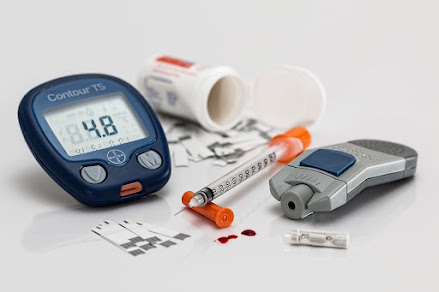Diabetes is a chronic condition in which the body is unable to produce or properly use insulin, a hormone that regulates blood sugar levels. There are two main types of diabetes:
Type 1 Diabetes: In Type 1 diabetes, the body does not produce insulin, and daily insulin injections or pump therapy are required to regulate blood sugar levels.
- Type 2 Diabetes: In Type 2 diabetes, the body does not produce enough insulin or does not use insulin effectively. This type of diabetes can often be managed through lifestyle changes such as diet and exercise, and may also require oral medications or insulin injections.
How Diabetes Affect Us?
Diabetes can have serious and potentially life-threatening effects on various aspects of an individual's health.
- Chronic high blood sugar levels can damage the blood vessels and nerves, leading to heart disease, stroke, and peripheral neuropathy (nerve damage in the feet and legs).
- Diabetes can also affect the eyes and cause damage to the blood vessels in the retina leading to blindness.
- High glucose levels in the blood can lead to kidney disease and potential kidney failure.
- Uncontrolled diabetes can also lead to gum disease and tooth loss, skin infections and slow wound healing, and an increased risk of hearing impairment.
- People with diabetes are also at higher risk of depression and other mental health problems.
It is important
for individuals with diabetes to closely manage their condition through
lifestyle changes such as healthy eating, regular physical activity, and
medication use as prescribed by a doctor to reduce these risks and prevent the
development of complications.
How To Manage Diabetes
There are several ways to effectively manage diabetes:
- Lifestyle changes: Adopting a healthy diet low in sugar and saturated fat, and engaging in regular physical activity can help manage blood sugar levels and reduce the risk of developing diabetes-related complications.
- Medications: For those with type 2 diabetes, oral medications or insulin injections may be prescribed by a doctor to help regulate blood sugar levels.
- Monitoring: Regular monitoring of blood sugar levels is essential in order to assess the effectiveness of lifestyle changes and medications.
- Foot care: People with diabetes are at higher risk of developing foot problems due to nerve damage, so regular foot exams and proper foot care are important.
- Stress management: Stress can affect blood sugar levels, so incorporating stress-management techniques such as yoga, meditation, and deep breathing into daily life can help manage diabetes.
- Quit smoking: Smoking can damage blood vessels and increase the risk of complications, so quitting smoking is an important step in managing diabetes.
- Regular check-ups: Regular visits to a doctor and specialist can help monitor for complications and prevent their development or progression.
It is important
for individuals with diabetes to work closely with their doctor to develop an
individualized plan for managing their condition and preventing the development
of complications.
Foods That Can Help in Diabetes
Eating a
balanced and healthy diet is important for managing diabetes. Some of the foods
that can help in managing diabetes include:
- Whole grains: Whole grains such as brown rice, whole wheat bread, and oatmeal are high in fiber and help regulate blood sugar levels.
- Non-starchy vegetables: Vegetables such as spinach, broccoli, and bell peppers are low in carbohydrates and high in fiber, making them a good choice for people with diabetes.
- Lean protein: Foods such as skinless chicken, fish, and legumes are a good source of protein and help regulate blood sugar levels.
- Healthy fats: Foods high in monounsaturated and polyunsaturated fats, such as nuts, avocados, and olive oil, can help improve insulin sensitivity and manage blood sugar levels.
- Low-fat dairy: Low-fat dairy products such as milk, yogurt, and cheese can provide important nutrients and help regulate blood sugar levels.
- Berries: Berries such as strawberries, blueberries, and blackberries are low in sugar and high in fiber, making them a good choice for people with diabetes.
It's important
to work with a registered dietitian to create a personalized meal plan that
meets an individual's specific needs and goals. Eating a variety of healthy
foods in moderation and following a regular meal schedule can help regulate blood
sugar levels and manage diabetes.

No comments:
Post a Comment